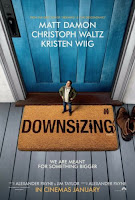A series of unfortunate events followed, and the responses to them became factionalised and also poisonous. It seemed almost impossible to assert that there was some truth on both sides of the many arguments - that the left generally, the left in the Labour Party, and the party itself really did have a problem with antisemitism and that at the same time there were unscrupulous people within and outside Labour who were “weaponising” this problem to attack the left in the party and Labour itself. And others who used the opportunity to attack anyone who’d ever tried to criticise Israel or Zionism.
The author is at great pains to be fair to the people he is writing about, and gives them the most sympathetic interpretation possible of what they said or meant to say. He does this with Jackie Walker, with Ken Livingstone, with Chris Williamson...and sometimes it feels like he’s just trying too hard, and that what he ought to be doing is blasting these people for wallowing in the fetid pools on the outskirts of political culture. He does the same with Luciana Berger, the JLM-supporting MP who I never had much time for, and who became a bitter enemy of the left.
He’s mainly kind to Jon Lansman, who emerges as something of a hero from the narrative, and he’s nicer to the JLM than I would have been, even though I know some people who are members and are actually quite decent. He’s even kind to the Chief Rabbi Ephraim Mirvis, treating his thoughts on Corbyn as if they were part of a considered and intellectually coherent commentary.
And he has a sensible, balanced approach to what Zionism means to Palestinians, and what it means to middle-of-the-road British Jews, which is not the same thing at all.
There are some things - inevitably - that don’t make it into the book. The various episodes involving Ken Loach, stretching all the way back to the ‘Perdition’ affair. The way that Corbyn himself, and his supporters, seemed unable to issue any condemnation of antisemitism without immediately adding “and all forms of racism”...a verbal tick which some have compared to the “All Lives Matter” racist response to Black Lives Matter. The often-repeated assertion that “our movement has a proud history” of antiracism, which is both untrue and irrelevant.







